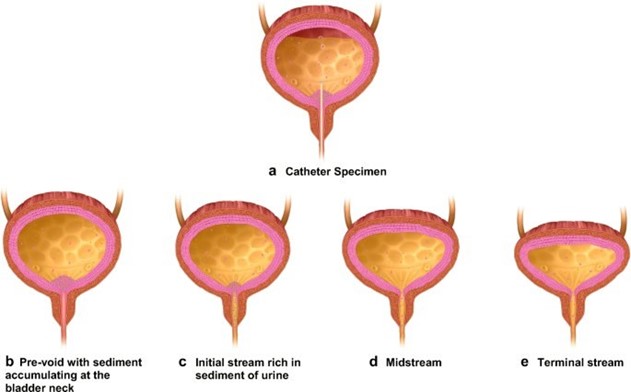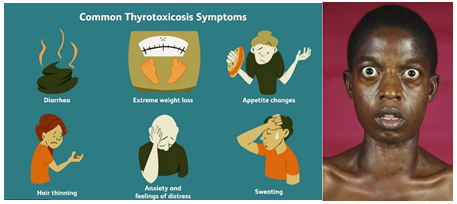A patient with severe tachycardia. hyperthermia and agitation are admitted for acute thyrotoxicosis (thyroid storm). The nurse will anticipate the need to administer which of the following medications?
Select all that apply.
captopril
acetaminophen
amiodarone
aspirin
propylthiouracil
Correct Answer : B,E,F
The other options are not typically used in the treatment of thyroid storm. Captopril is an angiotensin-converting enzyme (ACE) inhibitor used for hypertension and congestive heart failure, amiodarone is an antiarrhythmic drug used for cardiac arrhythmias, and aspirin is a nonsteroidal anti-inflammatory drug (NSAID) used for pain relief and fever reduction.
Nursing Test Bank
Naxlex Comprehensive Predictor Exams
Related Questions
Correct Answer is A
Explanation
The nurse should anticipate that the patient will need to collect a stool specimen. Diarrhea can be caused by various factors such as infections, inflammatory bowel disease, food intolerance, and medication side effects. Collecting a stool specimen can help identify the underlying cause of the diarrhea and guide appropriate treatment. Blood cultures, colonoscopy but barium enema may be necessary in certain cases but are not typically the first step in the diagnostic process for diarrhea.
Correct Answer is B
Explanation
This is because the persistent dysuria suggests that the initial treatment was not effective, and there may be a possibility of a resistant organism. Obtaining a midstream urine specimen for culture and sensitivity testing will help identify the specific microorganism causing the infection and determine the most effective antibiotic to use. The nurse should also instruct the patient to continue to drink plenty of fluids, as this will help flush out the bacteria and relieve symptoms. The nurse may suggest the use of acetaminophen (Tylenol) to relieve discomfort, but this should not be the only action taken, as treating the underlying infection is crucial. The nurse should not tell the patient to take trimethoprim and sulfamethoxazole for an additional three days, as the initial treatment was not effective, and a different course of treatment may be required based on the results of the urine culture and sensitivity testing.

Whether you are a student looking to ace your exams or a practicing nurse seeking to enhance your expertise , our nursing education contents will empower you with the confidence and competence to make a difference in the lives of patients and become a respected leader in the healthcare field.
Visit Naxlex, invest in your future and unlock endless possibilities with our unparalleled nursing education contents today
Report Wrong Answer on the Current Question
Do you disagree with the answer? If yes, what is your expected answer? Explain.
Kindly be descriptive with the issue you are facing.

